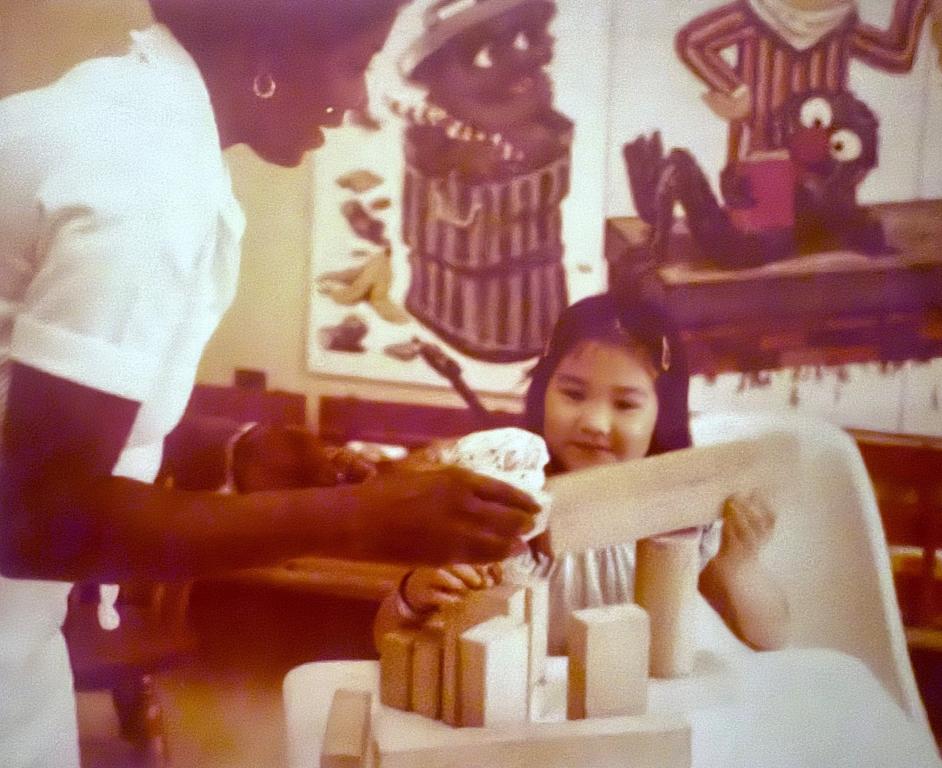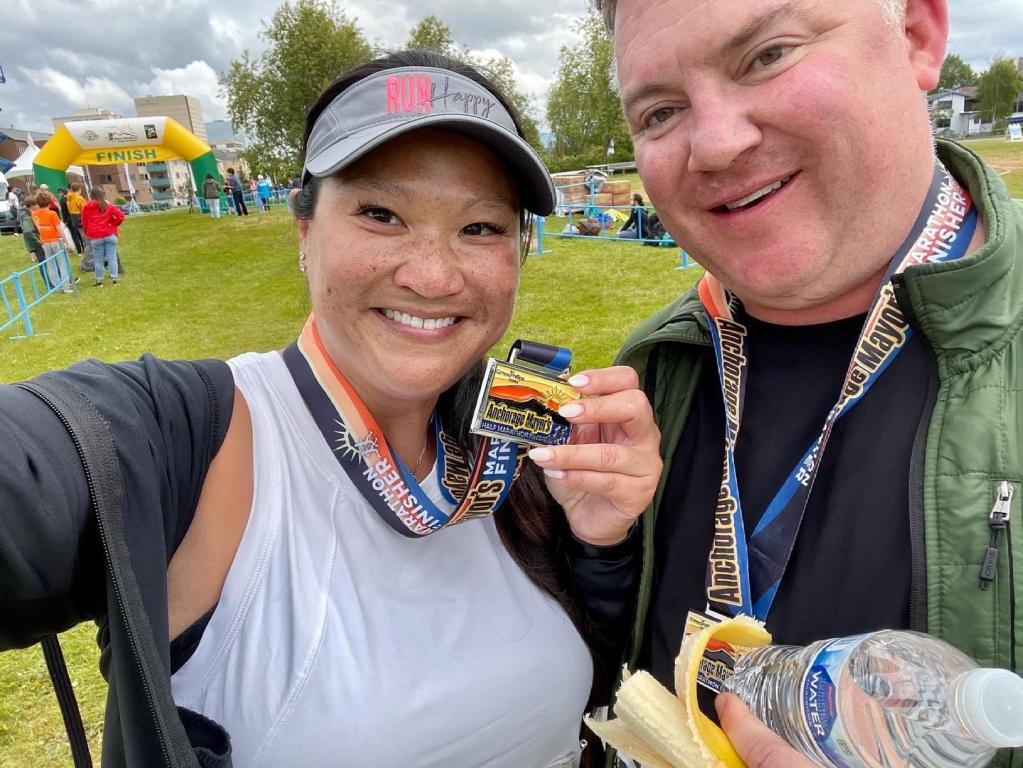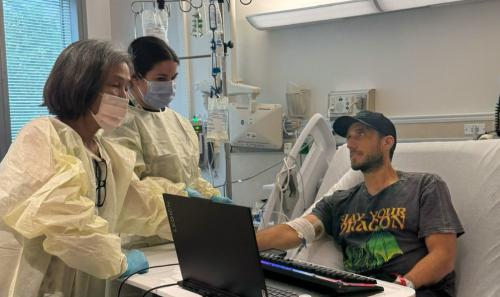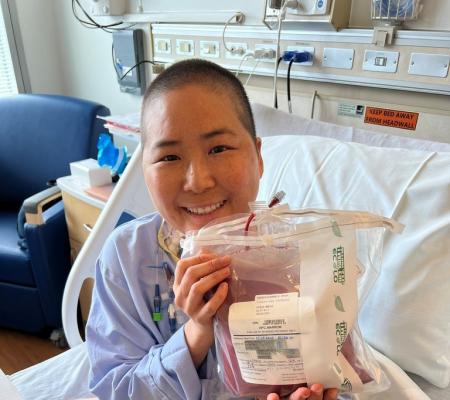
-
Understanding primary immunodeficiency (PI)

Understanding PI
The more you understand about primary immunodeficiency (PI), the better you can live with the disease or support others in your life with PI. Learn more about PI, including the various diagnoses and treatment options.
-
Living with PI
-
Addressing mental health
-
Explaining your diagnosis
- General care
- Get support
- For parents and guardians
-
Managing workplace issues
- Navigating insurance
-
Traveling safely

Living with PI
Living with primary immunodeficiency (PI) can be challenging, but you’re not alone—many people with PI lead full and active lives. With the right support and resources, you can, too.
-
Addressing mental health
-
Get involved

Get involved
Be a hero for those with PI. Change lives by promoting primary immunodeficiency (PI) awareness and taking action in your community through advocacy, donating, volunteering, or fundraising.
-
Advancing research and clinical care
-
Research Grant Program
-
Consulting immunologist
-
Diagnosing PI
-
Getting prior authorization
-
Clinician education
-
Survey research
-
Participating in clinical trials

Advancing research and clinical care
Whether you’re a clinician, researcher, or an individual with primary immunodeficiency (PI), IDF has resources to help you advance the field. Get details on surveys, grants, and clinical trials.
-
Research Grant Program

When Amy Johnson first learned she had common variable immune deficiency (CVID), she called her mother crying and asked, “Am I going to die from this disease?” Like most people, she’d never heard of CVID or primary immunodeficiency (PI).
“Those were dark days. Those were hard days. I felt very alone and very afraid,” said Johnson. “Even for someone with a bit of knowledge and background in medicine and a best friend who is a nurse, it was a lot to digest.”
Determined to educate herself about her diagnosis, Johnson started researching CVID and discovered the Immune Deficiency Foundation (IDF). Gaining knowledge and information about her condition made it manageable.
“What I tell a lot of people is you’re in a position where you feel like you suddenly have no control over your life and your health, and reaching out to an organization like IDF gave me a sense of control,” said Johnson.
Johnson also decided to give her time to IDF as a volunteer. She distributes PI educational materials at clinicians’ offices, speaks to Congressional offices on IDF Advocacy Day in Washington, D.C., and visits plasma centers to make donors aware of their impact.
“More often than not, people are donating plasma to get that paycheck, and they’re not giving thought to, well, this is helping a real person. This is improving someone's quality of life or saving someone’s life. I think people are surprised to know that their plasma donation is directly helping someone,” said Johnson.

Immunoglobulin (Ig) replacement therapy has made a tremendous improvement in Johnson’s health. She’s only had about five severe respiratory infections since starting treatment in 2011.
“It’s been a night and day difference. I just can’t even begin to explain it. It’s been life-changing,” said Johnson.
Prior to her diagnosis, Johnson developed chronic respiratory infections, especially in her lungs, and was hospitalized annually for pneumonia beginning at age 4.
“Back in the early 80s, the pediatrician just told my mom that I was sickly and had underdeveloped bronchial tubes,” said Johnson, adopted from Korea as a young child.
In her mid-30s, Johnson developed her annual lung infection and took several rounds of antibiotics that failed to get rid of the infection. She visited the emergency room of a major hospital to seek a stronger antibiotic.
“I was there for maybe 45 minutes, and the doctor comes in and she said, ‘Look, you're really, really sick and you're not going home. We've got a bed for you upstairs and you're staying,’” said Johnson.

It took 35 days in the hospital for Johnson to recover, and during that time, doctors ran tests for PI. After the tests showed she most likely had a PI, doctors sent Johnson, a Kansas City, Missouri resident, to a hospital in Denver, Colorado, where doctors administered a two-week rigorous evaluation and diagnosed her with CVID. The report she received back was inches thick.
“When you are diagnosed, you’ve never heard of this weird, rare disease, and suddenly the doctors are throwing terms at you like immunoglobulin. How many people even know that immunoglobulin is a building block of your immune system? But until you are forced to know these things, you don’t,” said Johnson.
Over the 15 years since her diagnosis, Johnson transitioned from a full-time career in public relations to running her own part-time business, allowing her flexibility for infusions and time off for illness. Her diagnosis requires her to be on Medicaid.
“I was very hesitant to do that, but as the medical bills were mounting, I realized that IVIG is very, very costly. With the time away from work becoming so significant, and me struggling to find gainful employment, it became evident I didn’t have a choice. It’s just so costly to keep that up,” said Johnson.

At 47, Johnson is engaged, and she and her fiancé enjoy watching documentaries (true crime is their favorite), visiting museums, and participating in outdoor sports when they have the energy.
“If we can bike it, hike it, walk it, or paddle it, then we’re all about it. We like adventure,” said Johnson.
Johnson is deeply rooted in her faith in God, and believes her life has purpose, whether that’s to help her fiancé through his recovery from a recent stroke or care for her ill father.
“Doing big things doesn’t have to mean I’m going to write a novel and become a gazillionaire and hold public office. It could be a big thing in my corner of the world, and I believe I’m meant to do big things in my life,” said Johnson.
“I have the ability to give myself grace, and I can show my body and my mind kindness and compassion. I can also show that to others and I can take my experiences and hopefully give someone else hope that it gets better. Because it does get better.”
Johnson doesn’t allow her diagnosis to dominate her life. Everyone has challenges. It’s all in how you approach them, she said.
“You have to try to make the best of what your life presents you. And sure, there are days when I have zero energy. I’m just like every other PI patient,” said Johnson.
“But I try to get some fresh air every day. I go on a mile walk with the dog each day. And some days I’ll just walk out to the mailbox and get the mail, and that’s it for the day. I think trying to make the best of your situation is key, because we all have something.”

Johnson encourages people with PI, no matter how long they’ve been diagnosed, to remain informed about their condition and find support through reputable organizations like IDF.
“If you feel like you have zero control over what’s happening to your body and to your life, then this is one area that you do have control over, and that is educating your family and friends about your illness, that you’re going to live with for likely the rest of your life,” said Johnson. “Definitely get involved. It’s worth it.”
Read other newsletter articles
The IDF ADVOCATE is the national newsletter of the Immune Deficiency Foundation, published twice a year. Download or request a free print copy of the newest edition!
Read newsletterRelated resources

Man with X-linked hyper IgM first-ever to receive novel gene therapy

Pharmacist with CVID receives bone marrow transplant

Undiagnosed: Reuben & Sherri Johnson on CGD, chronic illness, and the fight for healthcare
Sign up for updates from IDF
Receive news and helpful resources to your cell phone or inbox. You can change or cancel your subscription at any time.





The Immune Deficiency Foundation improves the diagnosis, treatment, and quality of life for every person affected by primary immunodeficiency.
We foster a community that is connected, engaged, and empowered through advocacy, education, and research.
Combined Charity Campaign | CFC# 66309

